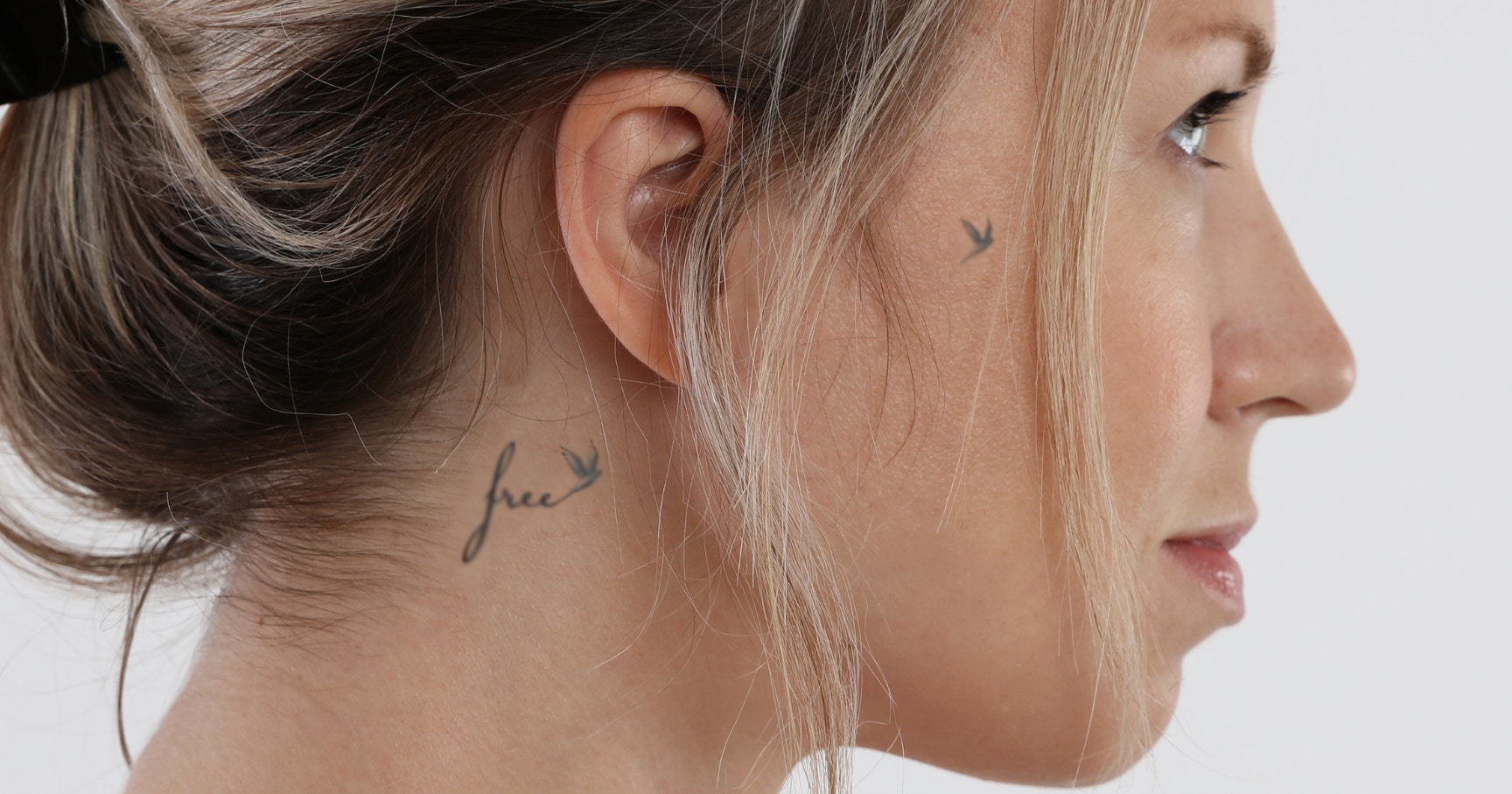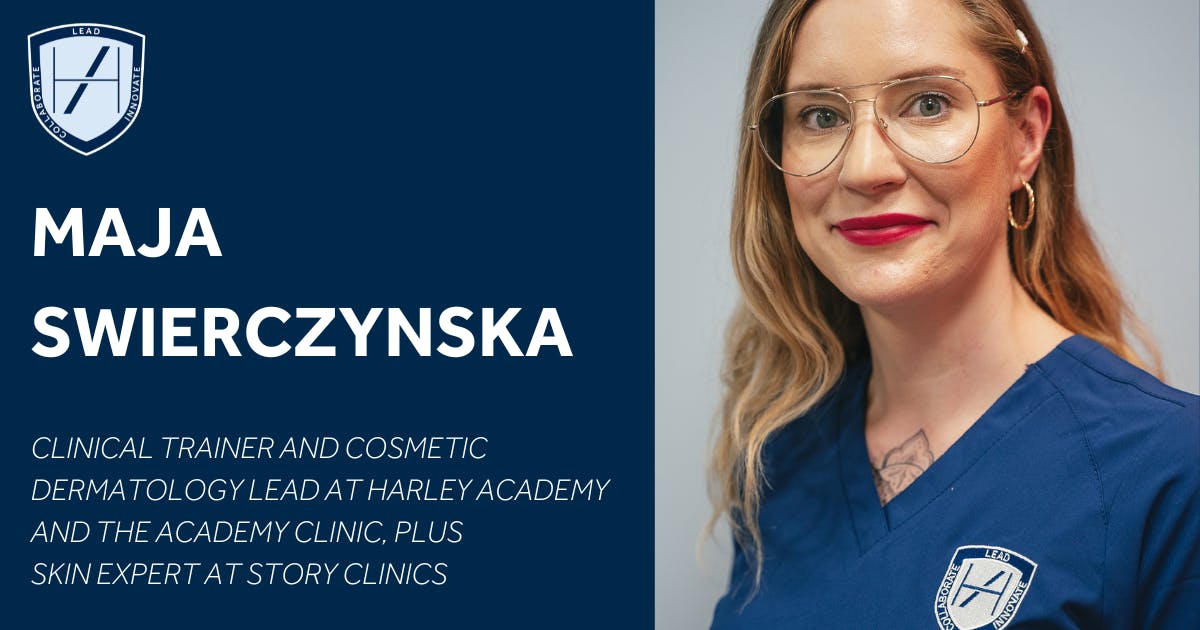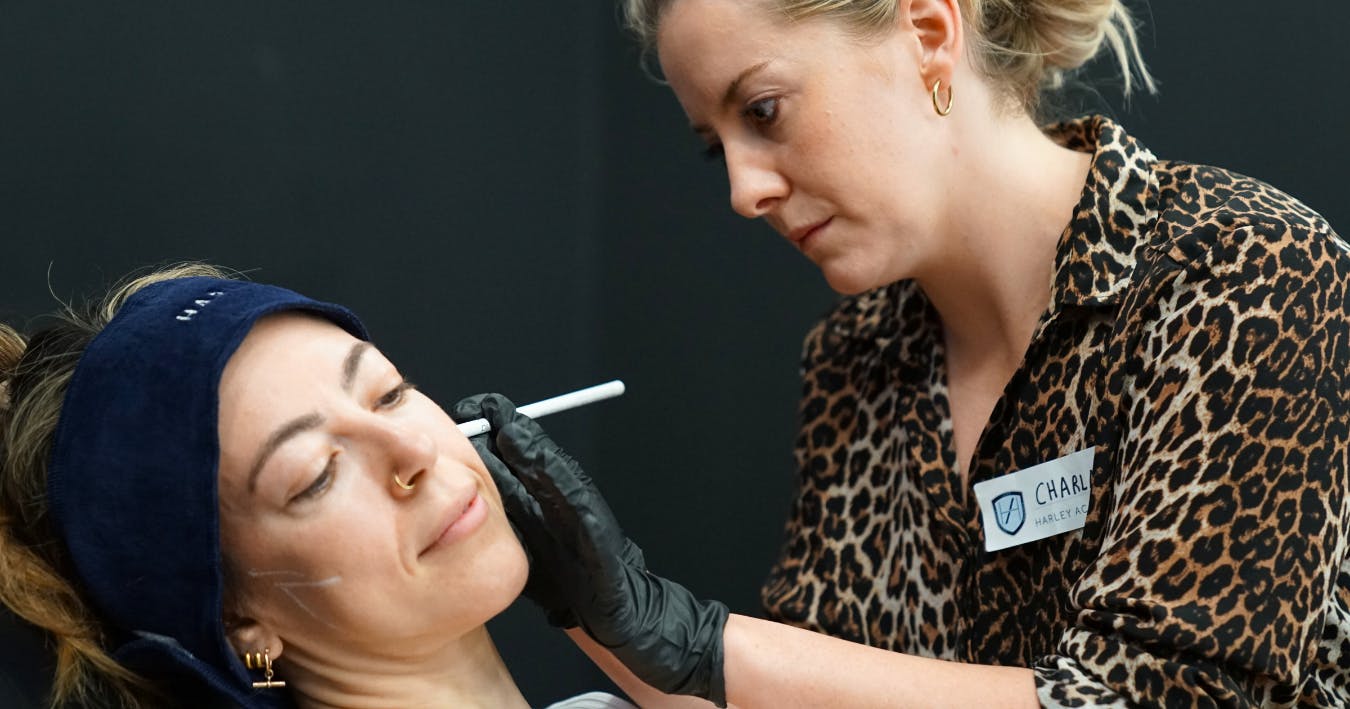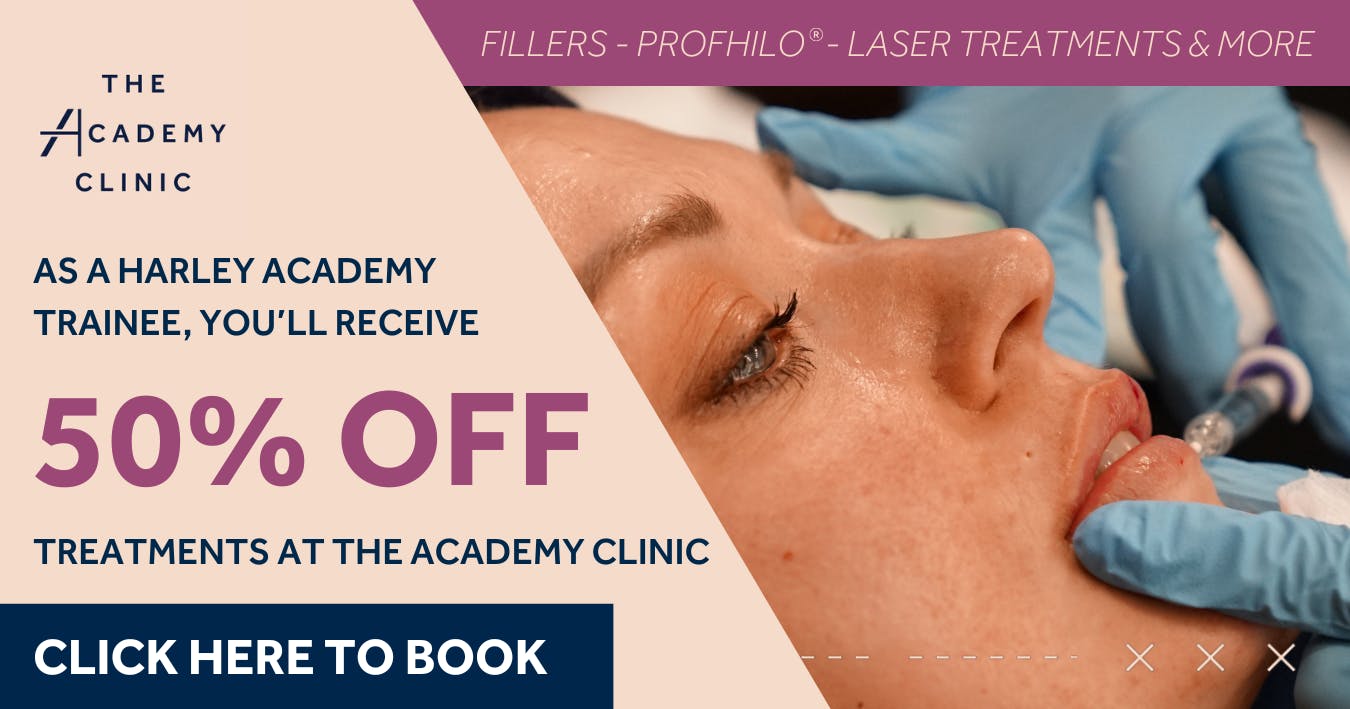Which Aesthetic Treatments are Unsuitable for Patients With Tattoos?

As visible body art becomes increasingly prevalent, do you know which aesthetic treatments are unsuitable for patients with tattoos?
From Virgin Atlantic’s cabin crew to the Metropolitan Police, rules are becoming more relaxed around visible tattoos in the workplace. A 2022 YouGov study found that a quarter of Britons were tattooed with one in nine having a visible tattoo.
From ‘stick and poke’ applications to traditional, Old World and Western tattooing, the trend has only grown since then. These numbers are likely to have risen in the past few years, especially when semi-permanent makeup tattoos, such as tattooed brows or lip liner, are taken into account.
As a result, you’re likely to encounter patients with body art. It’s understandable that they may have concerns about the effects of aesthetic treatments on their tattoos.
Can aesthetic treatments fade tattoos and reduce their longevity?
Are there any skin treatments that can benefit tattoo art?
Do you know how to answer these queries? We spoke to Harley Academy’s beautifully inked Cosmetic Dermatology Lead, Maja Swierczynska for her expert advice…

An important point before we start…
For the purposes of this article, we’re assuming that any tattoos are fully healed.
If you notice a tattoo in the patient’s treatment area that looks fresh or has any signs of scabbing, for example, always ask about it during your clinical consultation.
Tattoos can take a number of sessions to complete, which may also need to be factored into their aesthetic treatment schedule.
As such, if a patient has visible tattoos in the treatment zone, always ask them about it as a standard part of your consultation. You can then make an informed decision as to whether treatment is appropriate at this time.
It’s also worth noting that some forms of tattooing are not entirely visible, for example, semi-permanent tattoos for the eyebrow, may not be obvious, so it’s worth asking.
Are there any aesthetic treatments that are unsuitable for patients with tattoos?
“Yes,” confirms Maja. “Certain skin treatments may not be suitable for patients with tattoos in these areas if they are concerned about fading.”
She listed the aesthetic treatments that are unsuitable for tattoos, as including:
- Laser treatments
- Microneedling
- Radiofrequency microneedling
- Chemical peels
- IPL treatments.
Maja explains why these treatments are not ideal for patients with body art in the area being addressed.
Laser treatments
“Resurfacing or pigment-removal lasers can directly interact with tattoo pigments, leading to fading, distortion, or even burns and skin damage.”
Microneedling
“Regular microneedling may gradually break down tattoo pigments over time, potentially lightening the tattoo.”
The needles may also pick up pigment and place it in other areas where it’s not wanted.
Microneedling with Radiofrequency (RF)
“RF microneedling produces heat that can disrupt tattoo pigments. This makes it more likely to cause fading or colour changes.”
Chemical peels
“Medium-depth or frequent chemical peels can lighten tattoos, particularly if they involve areas with larger ink deposits.”
Intense Pulsed Light (IPL)
“IPL can inadvertently target tattoo pigment, leading to uneven fading or distortion of the ink.”
Are there any aesthetic treatments that may help the longevity of tattoos?
Maja advises, “Yes; skin boosters can be an effective option for supporting the longevity of tattoos. Skin boosters, such as hyaluronic acid-based injectables, improve overall skin health without disrupting tattoo pigments. This makes them ideal for preserving the appearance of tattoos over time.”
While you should not inject skin boosters directly into tattoo pigment, they can be used in the region of tattoos to improve skin quality. She outlines the reasons why:
Hydration and elasticity
“Skin boosters deeply hydrate the skin, enhancing its elasticity and firmness. This prevents the skin from sagging or wrinkling, which could distort the tattoo design.”
Improved skin texture
“By smoothing the skin and reducing fine lines, skin boosters may help tattoos to appear clearer and more defined.”
Enhanced radiance
“Skin boosters promote a natural, healthy glow, which can enhance the overall vibrancy of the tattoo.”
Collagen stimulation
“Some skin boosters stimulate collagen production, supporting the structural integrity of the skin and maintaining the tattoo's shape over time.”
She counsels, “Unlike other treatments that may risk lightening or distorting tattoo pigments, such as lasers or collagen induction therapy, skin boosters can not only preserve the design but may also enhance the surrounding skin's quality. This can help tattoos to look their best as the skin ages.”
Learn to administer skin boosters
Skin Injectables for Rejuvenation is available as a module on our popular Cosmetic Dermatology Course. This includes both skin boosters and polynucleotides training.
By immersing yourself in the theory and practice of skin treatments, you’ll empower a more holistic approach. You’ll also learn about common skin concerns and what skincare ingredients can help them, how to assess the skin with and without a device, chemical peels, microneedling and skin of colour, tailoring bespoke ‘Skin First’ treatment plans, and more.
Available as a standalone certification, this can also be combined with our postgraduate level qualification, the Level 7 Diploma in Cosmetic Injectables.
This combination, whereby you receive a multi-modal aesthetics education for fully-rounded care, is known as the Level 7+. It allows you to learn in tandem and receive both an Ofqual-regulated qualification in botox and dermal fillers and a certificate in cosmetic dermatology.
Not only is this a solid foundation from which to build your aesthetic practice, but also the Level 7+ offers a truly 360-degree approach to skin ageing and rejuvenation.

Can you offer skincare advice on looking after tattoos, generally?
“Proper skincare can help maintain the vibrancy, clarity and definition of tattoos for years,” states Maja.
Here are her key tips, which you can pass on to your aesthetics patients so they can incorporate them into their skincare routine…
Always wear sun protection
“UV exposure is the primary cause of tattoo fading. Apply a broad-spectrum sunscreen with SPF 30 or higher daily, and reapply frequently when outdoors. Physical sunscreens with zinc oxide and titanium oxide are especially effective for tattooed skin.”
Hydration
“Keep the skin hydrated to prevent dryness, which can make tattoos look dull or flaky. Use emollient-based moisturisers containing ingredients such as ceramides, fatty acids and cholesterol.”
Avoid harsh exfoliation
“Over-exfoliating tattooed areas with scrubs or strong acids can lighten the pigment over time. Use gentle exfoliants if needed and avoid scrubbing directly over the tattoo.”
Retinoids and retinol skincare products can also fade tattoo pigments over time. This action of accelerating skin cell turnover is usually considered a benefit. However, when it comes to tattoos, it may cause the pigments to be removed as the old skin cells shed. It’s particularly worthwhile conveying this to patients with face or hand tattoos.
Prevent skin damage
“Protect tattooed areas from trauma, irritation or overexposure to chlorinated water. These can lead to pigment loss or dulling.”
Precautions aesthetic practitioners should take when treating patients with tattoos
We wanted to know if there was anything aesthetic practitioners should be wary of when deciding whether to treat patients with visible tattoos. For example, is there any specific aftercare advice that might be relevant?
Maja listed the following warnings:
- “Avoid direct treatment over tattooed areas unless the procedure is confirmed safe, for example, gentle facials”
- “Check for signs of skin irritation, infections, or underlying conditions that may complicate treatments. Tattoos may also mask certain skin conditions, so a thorough consultation is essential.”
We hope this information is helpful in your pursuit of an enhanced understanding of aesthetics patients, their concerns and how to address them. If you have any queries after reading this article, feel free to pop them in the chatbot in the corner of this screen (you must allow cookies to access this function). We’ll be happy to answer!
All information correct at time of publication
Download our full prospectus
Browse all our injectables, dermal fillers and cosmetic dermatology courses in one document
By submitting this form, you agree to receive marketing about our products, events, promotions and exclusive content. Consent is not a condition of purchase, and no purchase is necessary. Message frequency varies. View our Privacy Policy and Terms & Conditions
Attend our FREE open evening
If you're not sure which course is right for you, let us help
Join us online or in-person at our free open evening to learn more
Our Partners














STAY INFORMED
Sign up to receive industry news, careers advice, special offers and information on Harley Academy courses and services


